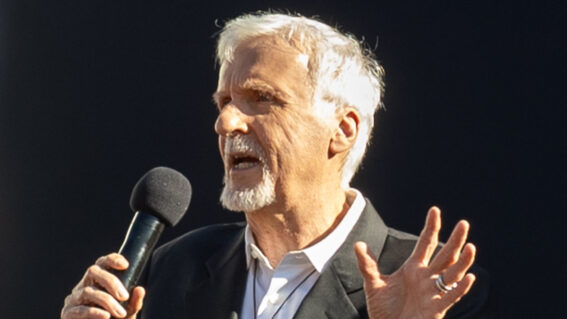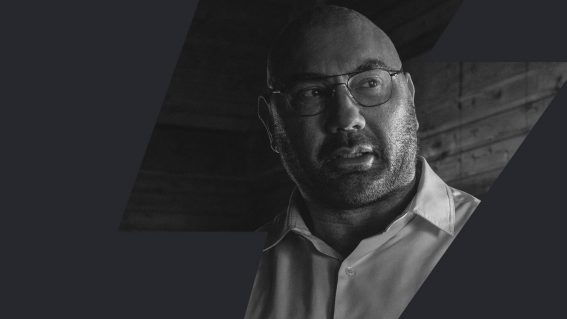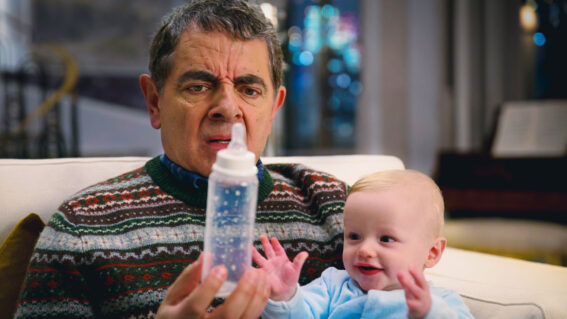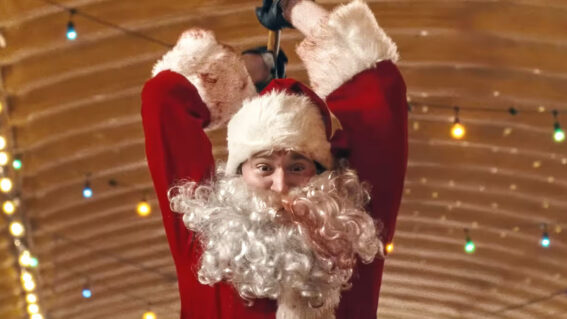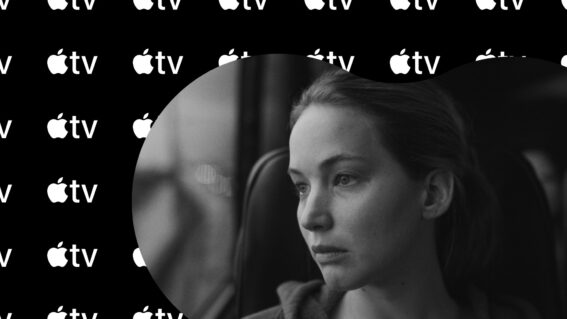We have faith that Everyone Else Burns will be your fave new UK sitcom
It’s the end of the world as we know it, and dad’s a jerk.
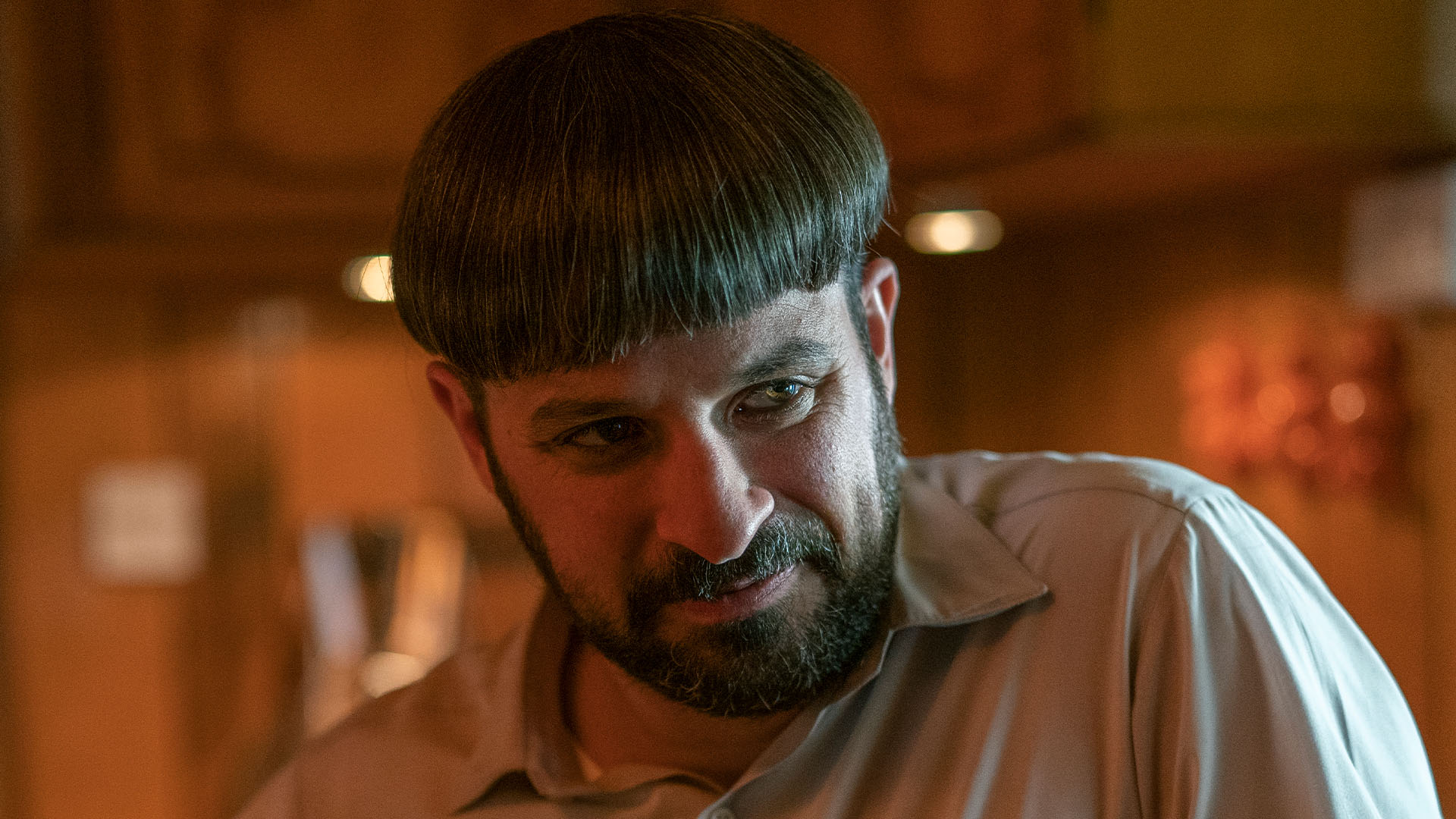

A fantastic cast serves up a high joke-per-minute ratio in UK comedy series Everyone Else Burns – streaming on Neon. For a show about a family who belong to an impossibly strict Christian faith, it’s actually very considerate to all concerned, writes Tony Stamp.
The UK sitcom has come a long way. I grew up watching classics like It Ain’t Half Hot Mum, Open All Hours, Blackadder, Only Fools and Horses, Last of the Summer Wine and many more. I am not speaking to the quality of those programmes—classics all—when I point out that, by and large, they look a bit rickety nowadays.
This is a huge part of their charm, of course. But when I sat down to watch Everyone Else Burns, a new sitcom produced for the UK’s Channel Four, the first thing that struck me was how real it looks. After an influx of big-budget TV fare from very major studios I won’t name, all of which is clearly shot on soundstages and lit in post production, this show—a humble situation comedy—featured actual locations, natural lighting, and considered shot composition.
This is in many ways beside the point. The first question to ask about any comedy should be ‘is it funny’, and the answer in this case is a definitive ‘yes’. It’s fantastically cast, with a high joke-per-minute ratio, and—for a show about a family who belong to an impossibly strict Christian faith—actually very considerate to all concerned.
The show starts in a panic, as David Lewis rouses his family in the middle of the night, telling them Armageddon has arrived, and it’s time to leave the sinners to their fate and join the blessed few in heaven.
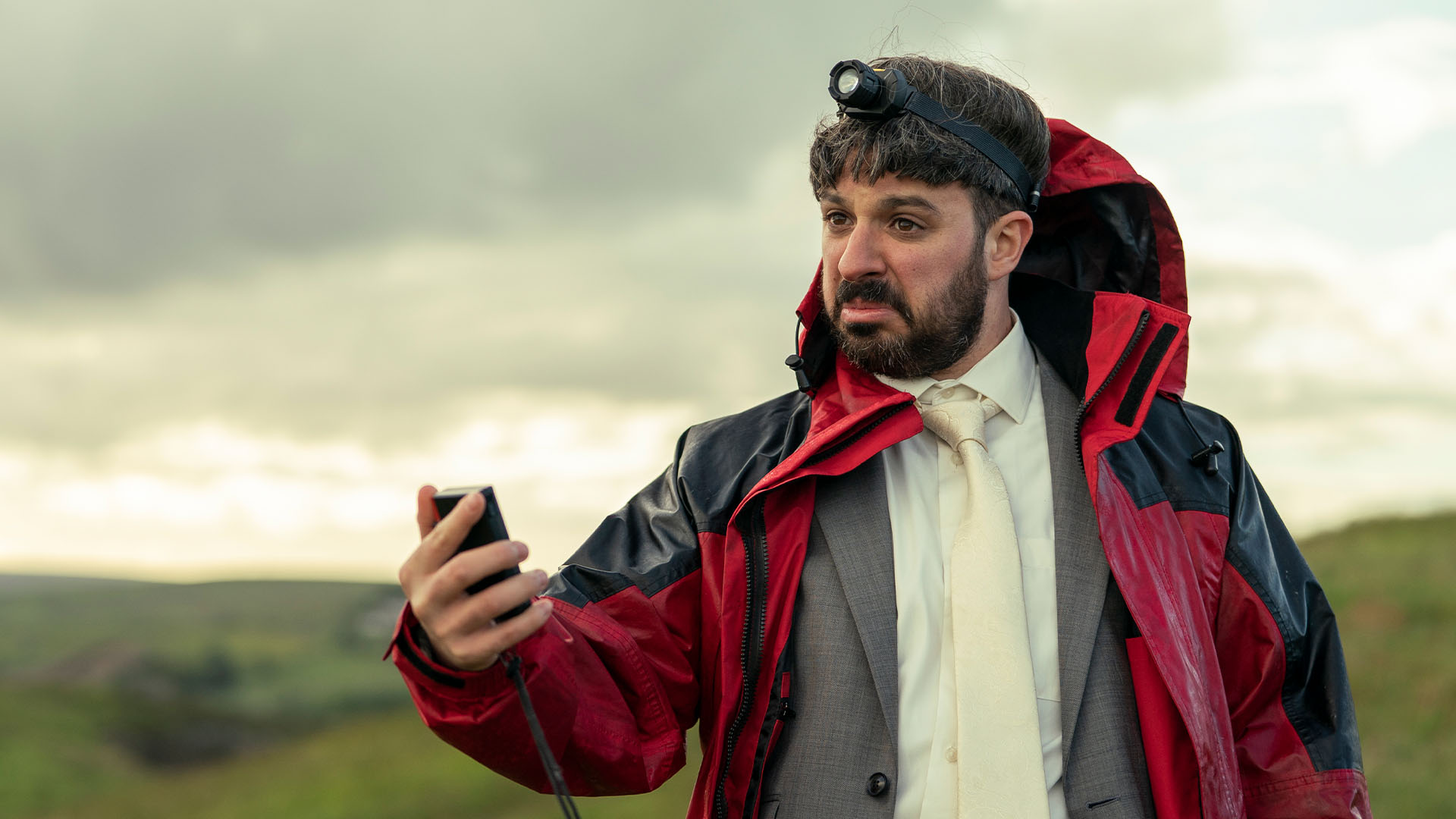
Except of course that’s not what’s happening; it’s just a drill that he’s timing. His wife Fiona follows along knowingly, responding to her distraught teenage daughter Fiona when she asks if she’ll be allowed to join paradise with a disturbingly deadpan “I couldn’t say. Who can fathom the mysteries of the Creator?”
David is more up front: “I give you about fifty-fifty”.
Their younger son Aaron meanwhile seems enthused about the whole thing; relieved even. The possibility of his sister’s soul turning to ash strikes him as pleasant, and when they’re told that the world isn’t ending, he’s downright livid.
Aaron is around ten, and gives the series its first big laugh when he shakes his fist at the rising sun (beautifully filmed), and bellows “Let it end!”
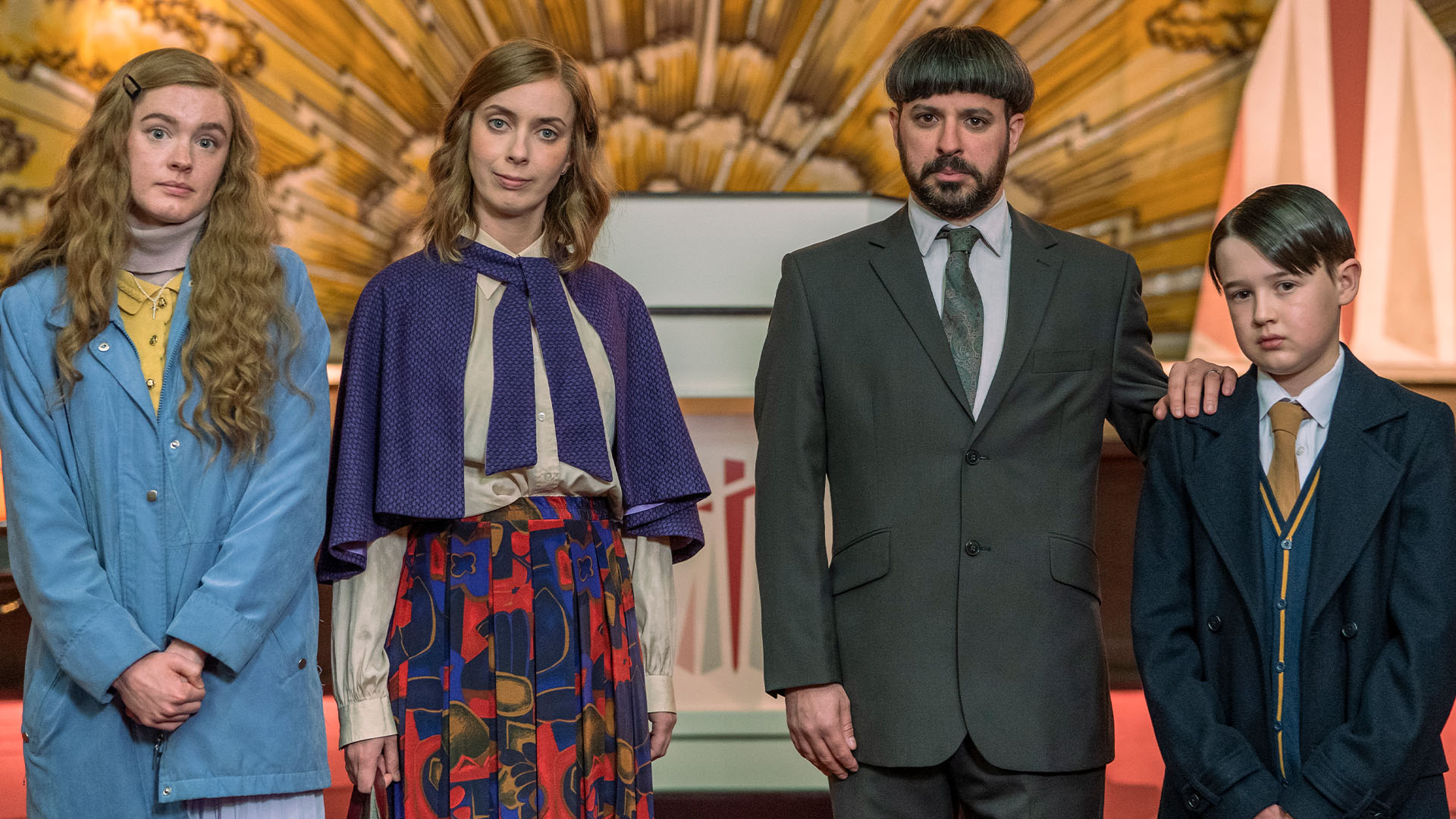
His ongoing fury is one of the series’ running gags, channelling his disappointment at his father via drawings of him being tortured in hell in various awful ways. That David won’t take any blame for raising a young boy like this is one way the show shines a light on his complete lack of self-awareness, the evergreen comedic fuel of many a show.
But David got here by conditioning too. The first time we see the Lewises at church, the pastor informs the congregation that a family has been shunned for drug dealing. “They knew what they were doing when they opened that cafe”, remarks Fiona.
The caffeine-intolerance continues in episode two as the ‘cool’ church leader (floppy-haired, overly affable), tells David it’s fine to drink a cola occasionally, before the beverage is ripped from his hand by a disapproving superior.

The Lewis patriarch is Everyone Else Burns’ most overtly comic creation, ludicrous bowl haircut perched atop a face that’s permanently set to ‘disapproving’. He’s constantly sitting in judgement of others, convinced of his own moral superiority. It took a while to recognise Simon Bird from The Inbetweeners (in which he played a teenager), but Google tells me that, as per the relentless march of time, he’s now a man in his late thirties, reasonably cast as a father of two.
Dianna is played by Kate O’Flynn, thoroughly buttoned-down until the show devises ways to let a manic interior peek through, firstly when a new gig selling bags is presented to her. It’s made clear that women are not afforded the same rights as men within the church, and while the latter seem frankly past the point of reason, the show aligns itself with the female Lewis’s’ awakening.
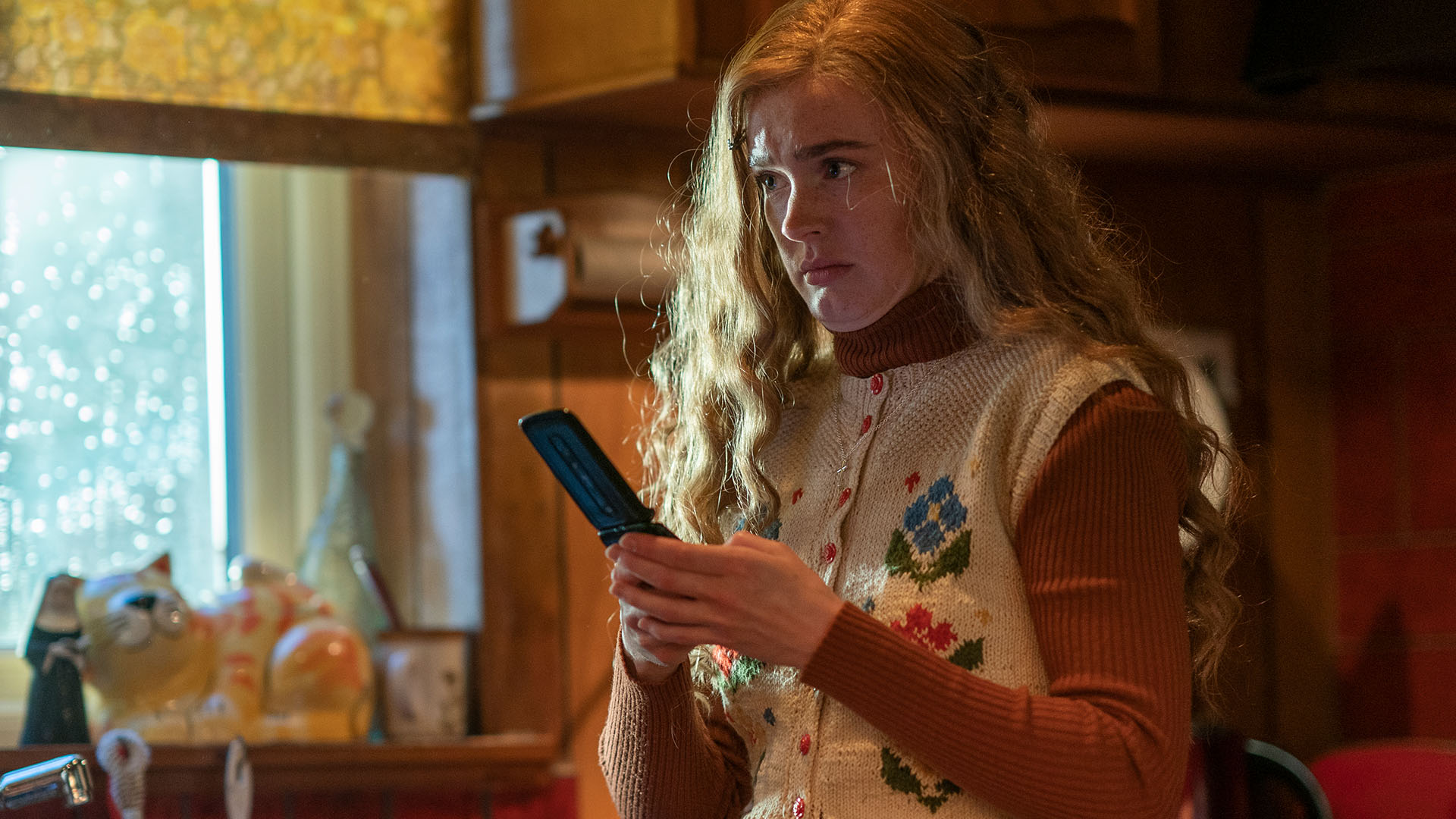
The most sympathetic character by far is Rachel, who strikes up a friendship with a former church member called Joshua, symbolising the allure of the outside world with his coffee drinking and smartphone use. Their interactions are the show’s most human, and you soon find yourself rooting for their relationship (when not yelling at the TV for Rachel to escape her family while she still can).
David does acquiesce to her request for a mobile, gifting her his twenty-year-old flip phone that leaks battery acid. “Hours spent texting my dad about how the Old Testament predicted the credit crunch”, he says fondly.
Rachel’s school work also comes into focus (David and Fiona are disappointed in her A grades, which suggest too much studying, not enough time converting disbelievers), and this brings us into contact with her teacher Miss Simmonds. Played by the excellent Lolly Adefope, she frequently alludes to a gambling problem (an example of the non-church characters being equally problematic).
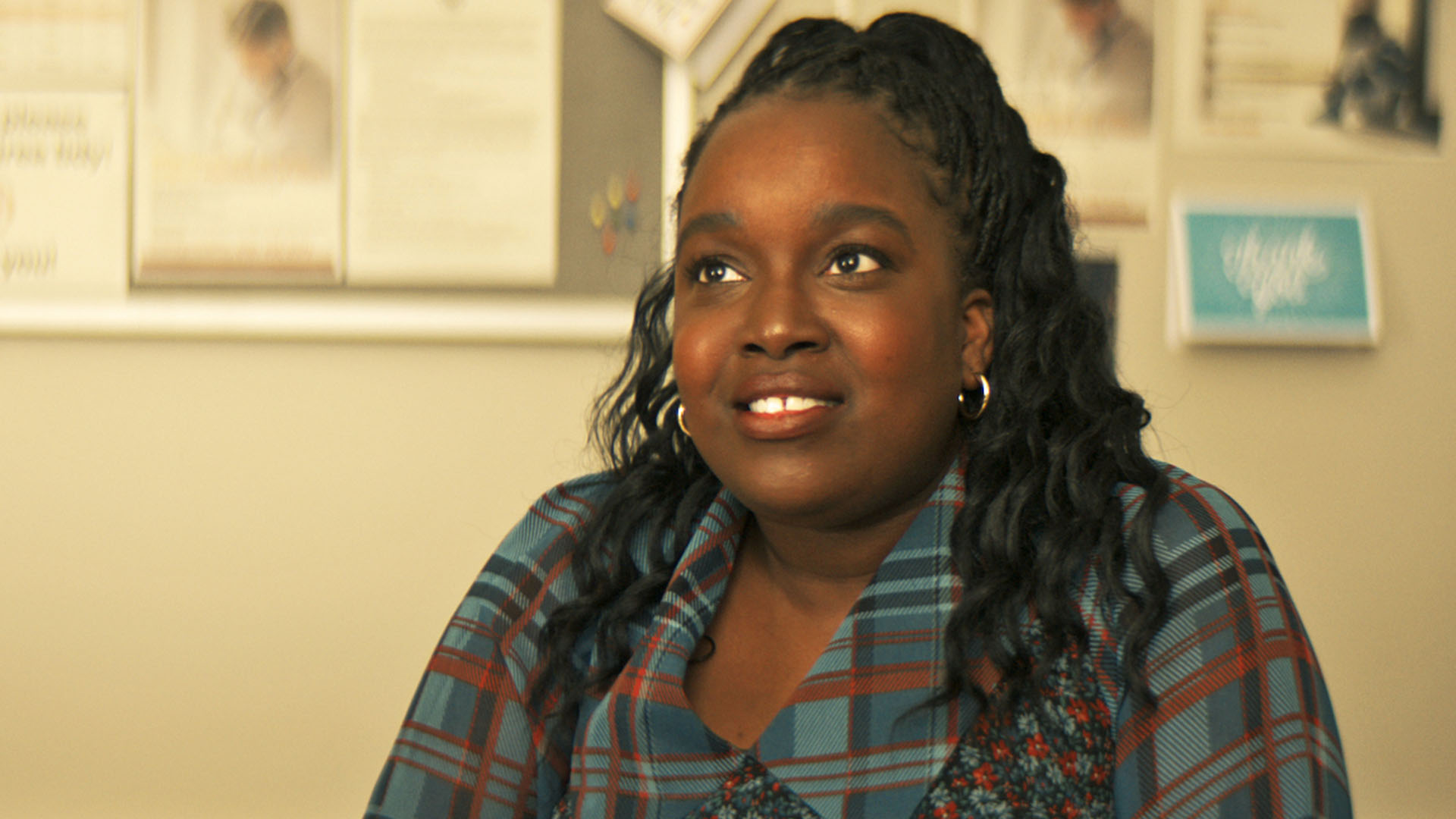
Dillon Mapletoft, who co-created the series with Oliver Taylor (and possesses one of the most British names I’ve ever read), was raised as a fundamentalist Christian, which goes some way to explaining the series’ mix of axe-to-grind specifics with a more sympathetic sensibility. Taking aim at any religion may seem a little distasteful in 2023, but once you watch it’s clear the creators are mining humour from their character’s foibles more than any one organisation. And more than that, no one is villainised (well, maybe David).
The show has been picked up by the CW in America, prompting reassurances from its executive producers that Everyone Else Burns “doesn’t punch down”, which is absolutely true. There are plenty of barbed jokes throughout, but Taylor and Mapletoft walk a fine line, making sure their leads are sympathetic enough that you’ll keep tuning in each week.








